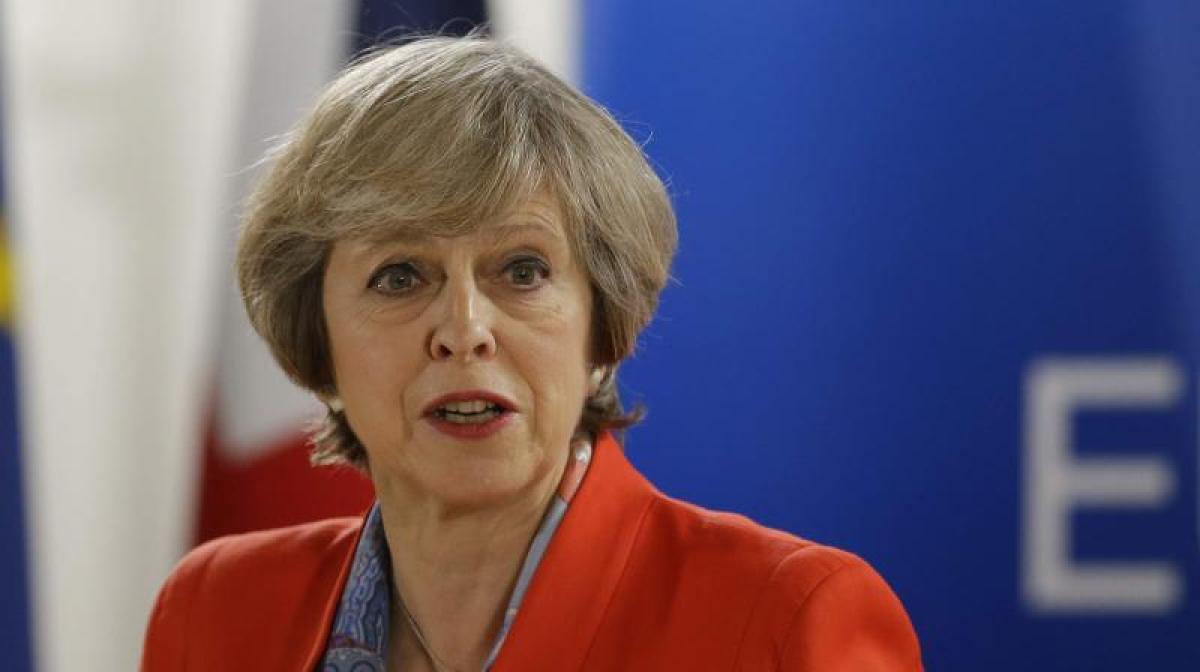Live
- Chanchalguda Jail Officials Say They Haven't Received Bail Papers Yet, Allu Arjun May Stay in Jail Tonight
- BJP leaders present evidence of illegal voters in Delhi, urge EC for swift action
- Exams will not be cancelled: BPSC chairman
- Nagesh Trophy: Karnataka, T.N win in Group A; Bihar, Rajasthan triumph in Group B
- YS Jagan condemns the arrest of Allu Arjun
- Economic and digital corridors to maritime connectivity, India and Italy building vision for future, says Italian Ambassador
- SMAT 2024: Patidar's heroics guide Madhya Pradesh to final after 13 years
- CCPA issues notices to 17 entities for violating direct selling rules
- Mamata expresses satisfaction over speedy conviction in minor girl rape-murder case
- Transparent Survey Process for Indiramma Housing Scheme Directed by District Collector
Just In

Britain\'s snap election is likely to be judgement day for embattled opposition Labour leader Jeremy Corbyn, but offers little prospect of resolving the deep-seated tensions tearing the party apart, experts said.
Britain's snap election is likely to be judgement day for embattled opposition Labour leader Jeremy Corbyn, but offers little prospect of resolving the deep-seated tensions tearing the party apart, experts said.
As the country gears up for a June 8 vote, the centre-left party lags far behind Prime Minister Theresa May's Conservatives in the latest opinion polls and is bitterly divided over Brexit.
With her shock announcement calling for an election on Tuesday, May made a bid to strengthen her position going into negotiations for leaving the European Union but also to capitalise on Labour's weaknesses.
"It's a mixed blessing, it's an opportunity for the Labour right to oust Corbyn if he performs badly, but it could be a political disaster and Labour could poll its lowest vote since 1918," political expert and author Eliza Filby told AFP.
Wyn Grant, politics professor at the University of Warwick, said: "Clearly if Labour suffer a big defeat, Corbyn is going to go".
"The Labour Party is then going to have to identify a new leader of the opposition who has real credibility and can rebuild the traditional bases of support, which is going to be a big task.
"It may not be possible within the span of one parliament to achieve that," he said.
Veteran left-winger Corbyn, who was seen as a marginal figure, came to power in 2015 after the party changed the rules to allow grassroots members to elect the leader, as opposed to its MPs.
The vote for Brexit last June brought tensions between Corbyn's team and the more centrist MPs to a head after the leader -- a long-time eurosceptic -- was accused of sabotaging the campaign to stay in the EU, the party's official position. However, a bid to oust him floundered.
The party has traditionally counted on working-class communities in northern England and Scotland and progressive urban voters, but is in danger of losing both, warned Filby.
"They are under threat from so many different angles -- in Scotland from the SNP (Scottish National Party); from the Liberal Democrats in the cities; the Conservatives and possibly UKIP (UK Independence Party) in the north."
She said Brexit only highlighted deeper ideological differences between the anti-globalisation, pro-Brexit working class bloc and the pro-EU, pro-immigration urban voters.
'Too strong to collapse'
"Corbyn's strategy has been to say 'we will allow Brexit to pass but under certain conditions'. That hasn't really worked in parliament and I'm not sure it will work in the country," she said.
"Core voters in the north who voted for Brexit are not convinced, and metropolitan liberal voters aren't convinced by that either."
Adding to the pressure is May's apparent ability to bridge the class divide, with the latest YouGov poll finding she was almost as popular with poorer voters as she was with the affluent.
Meanwhile, the Liberal Democrats and the SNP, will hope to woo disappointed pro-EU voters with their clear anti-Brexit stance.
Latest projections produced by the Electoral Calculus group predict that the Conservatives would win 381 seats, a gain of 50 seats from the 2015 vote, with Labour winning 182 seats, a loss of 50 seats.
Despite the potential electoral disaster, Filby doubted that the vote posed an existential crisis for the 117-year-old party.
"I don't think it will be the final nail in the coffin. It's in a position where it is too strong to collapse and too weak to win."
Corbyn himself remained bullish after May's announcement, insisting he wanted "to lead a government that will transform this country."
King's College professor Alex Callinicos said even replacing Corbyn would leave no end in sight to the battle over the party's soul.
"Even if the divisions went away, it still wouldn't be clear what Labour stands for," he said.
Filby said that what the party needed was a "unity candidate that can bring both elements, the parliamentary party and the voting constituency together".

© 2024 Hyderabad Media House Limited/The Hans India. All rights reserved. Powered by hocalwire.com







